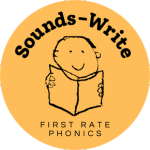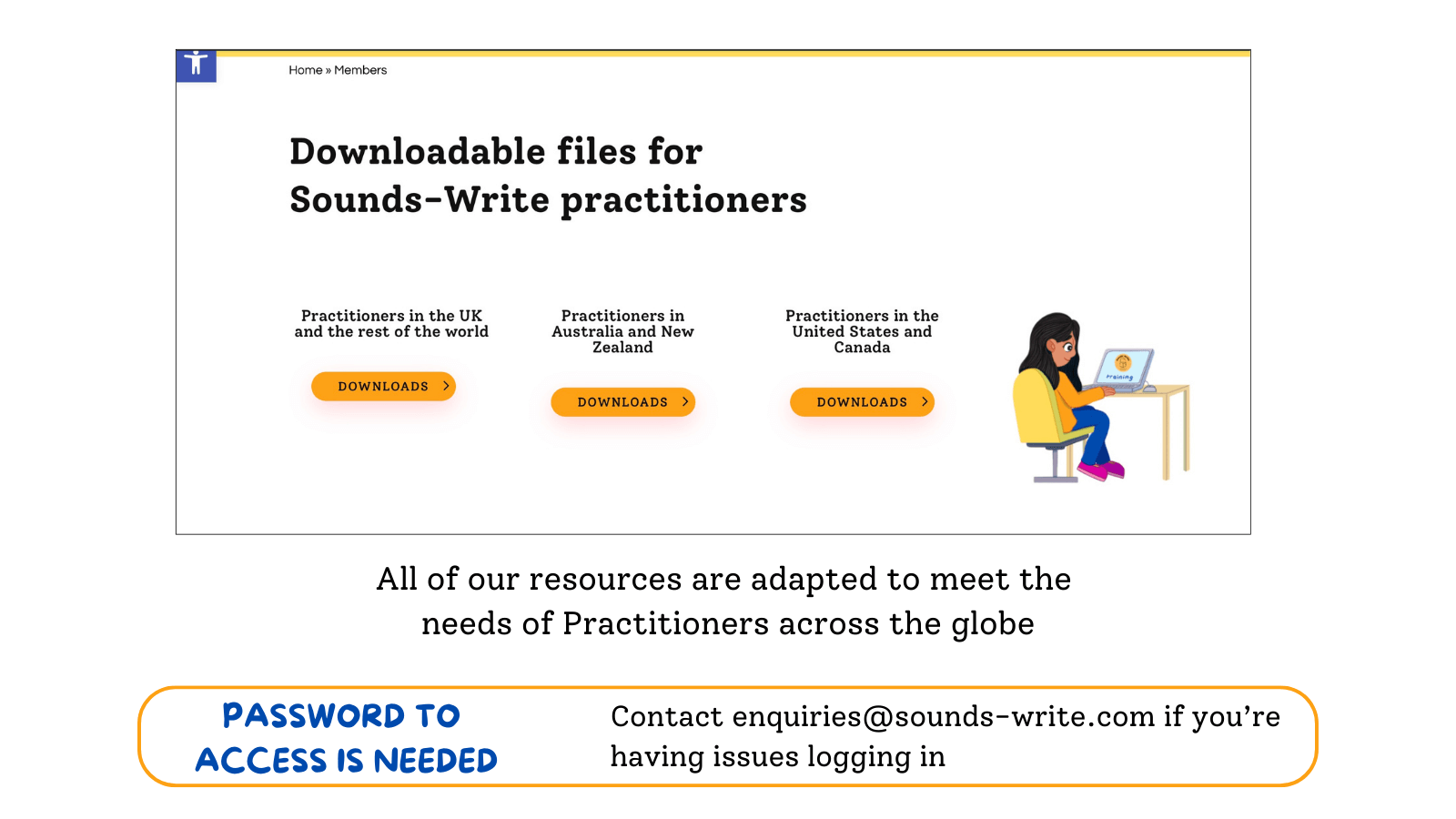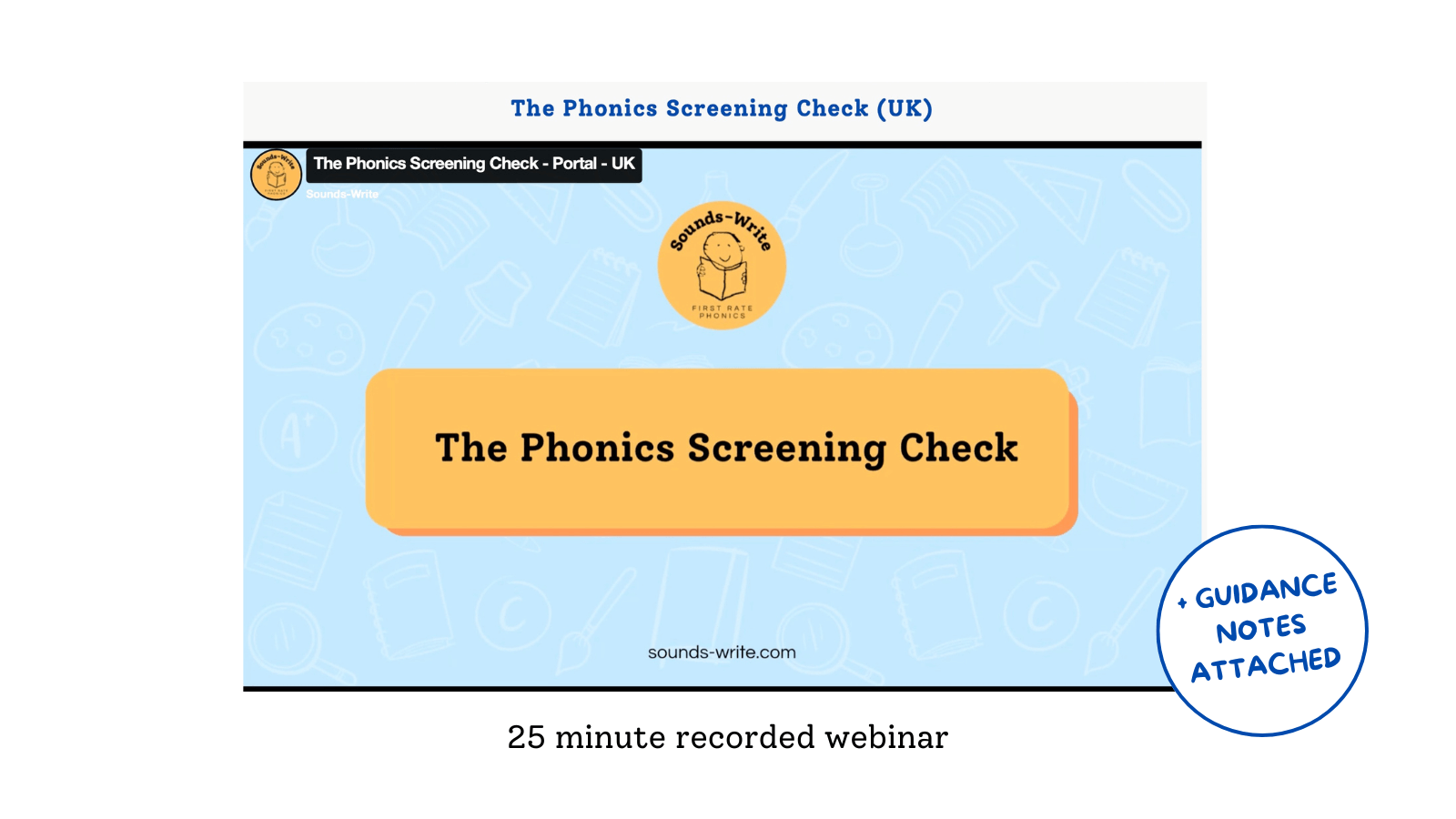The PSC (Phonics Screening Check) may seem some time away yet but, at Sounds-Write, we recommend that you review what your class has been doing so far to make plans for the months ahead.
Let us guide you! In this blog, we’ll explain how you can use the tools we’ve created for Sounds-Write practitioners to monitor students’ progress. This will ensure your students have every chance to achieve their full reading potential and pass next year’s PSC.
Assess Student Progress
You need to know if your students are on track for this point in the year and it can be tempting to administer a previous year’s PSC to check up. However, at this point in Year 1, so much of the code has not yet been taught. Instead, you will want to assess your students based on the code they have been taught so far and also check that their skills are ‘spot on’.
Gather most of your formative assessment data by observing your students during phonics sessions and their reading and writing activities throughout the school day. As their teacher, you will know what your students can do and cannot do yet. And you’ll be adapting your teaching all the time to address any misconceptions or gaps in learning.
You can use the Sounds-Write adapted PSC materials to inform your ongoing assessment and guide how you will tailor your teaching to the particular cohort of students you have this year. These adapted PSCs are designed to be used at key points in the school year and only include code taught up to that point.
Take a look in the downloads section of the website (available to Sounds-Write trained practitioners only) to find the adapted PSC materials. There are three adapted checks to choose from:
- The first contains only code from the Initial Code and can be used in the first month of Year 1
- The other two contain code up to Unit 8 of the Extended Code and should be used when the class has reached this point. In England, this would usually be December or January of Year 1. You may wish to use one before the Christmas break and one around before February half term, for example
Use the assessment data from these adapted checks to inform your teaching and plan for any interventions needed. Really analyse the errors your students made and think about what they cannot do yet and how you can help them make progress. This will be key for keeping your students on track towards not just PSC success, but towards becoming proficient readers and spellers!
Pointers for Adaptive/Responsive Teaching
Remember that learning to read is learning to use an invention. It’s not unlike learning to play the violin, for example. To become proficient readers, some students will need more direct instruction and more practice than others, so it’s important that you are responsive to this and make careful decisions about teaching and interventions based on your ongoing formative assessment.
You can find out more about effective interventions in our specialist course for trained practitioners: Interventions Masterclass.
Ensuring Coverage for the PSC in Year 1
Make sure that you are teaching everything needed in advance of the PSC. If you are a Year 1 teacher in England, watch and read our PSC guidance within the portal.
There are some sound-spelling correspondences you will need to teach tangentially and some units that you may want to teach earlier in the year to ensure that your students are well-prepared for the PSC. Remember, you should have started teaching polysyllabic words from the second week Week 2 of Unit 4 /oe/. The PSC will contain polysyllabic words, so you want to make sure your students’ strategies and skills are ‘spot on’!
Don’t forget to check that your students’ blending and segmenting skills with adjacent consonants are ‘pin sharp’. For example, the 2022 check (England) included 23 words with adjacent consonants. Your students cannot pass the check if they have poor skills with adjacent consonants. It’s about skills as well as code!
Further reading
Mastering Phonemic Awareness: Your Key to Success
Practical teaching tips to get students ready for PSC
Phonics Screening Check: Our Analysis
A deep dive on the 2024 PSC results, by CEO, John Walker
Sounds-Write in Schools: Twynyrodyn Community School
Get a glimpse of Sounds-Write in action
Sounds-Write Ltd
Whiteleaf Business Centre
11 Little Balmer
Buckingham
MK18 1TF
Tel: 01280 825537
Registered in England and Wales: 04655753
VAT Number: 821260076
Copyright Sounds-Write Ltd






